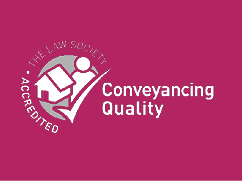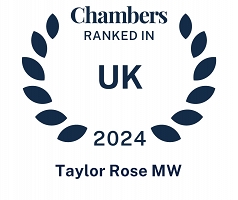News
HOW CAN YOU MAKE SENSE OF PROPORTIONALITY IN LEGAL COSTS?
Thu 16 November 2017
Taylor Rose TTKW’s expert costs draftsperson, Catherine Rickett examines proportionality following the outcome of BNM v MGN.
One of the single biggest arguments faced when dealing with a claim for costs, either as a receiving or paying party, is the issue of proportionality.
Prior to the Jackson reforms, in claims issued or started prior to 1st April 2013, it was necessary to consider and apply the two-stage test as set out in Lownds v Home Office.[1] This was a case where the paying party was ordered to pay costs of over £16,000 in a claim which had been settled at just £4,000 (although not all of the costs were subject to the same proportionality test). The court set out a two stage approach. The court must firstly consider the whole of the claim for costs to decide whether it is proportionate. If it is, a reasonable amount will be allowed for each item. After this first consideration of the bill, if the amount of costs claimed is seen as disproportionate, the court must allow a reasonable sum only for work that was necessary.
The Jackson reforms brought a change in the CPR, and for all claims started after 1st April 2013, it is now necessary to apply the proportionality test contained within CPR 44.3(5), which states that that the costs incurred are proportionate if they bear a reasonable relationship to; the sums in issue in the proceedings; the value of any non-monetary relief in issue in the proceedings; the complexity of the litigation; any additional work generated by the conduct of the parties and any wider factors involved in the proceedings, such as reputation or public importance. Proportionality is now overriding; even costs of necessary work may be disallowed.
Whilst we thank Lord Justice Jackson for his input and the subsequent implementation of the proportionality test into the rules, we must ask the question, what does it all mean? What is proportionate, and what is not? We have received little guidance on this and were all looking forward to the handing down of judgment in the case of BNM v MGN[2] for more guidance in this area, particularly as the case was one which had a life spanning across the two proportionality tests.
In this case, the defendant paying party (MGN) agreed to pay to the claimant £20,000 plus costs. The claimant sought costs of £241,817, including a 60% success fee for the claimant’s solicitors and a 75% success fee for counsel. An After the Event insurance premium was also claimed in the sum of £58,000 plus IPT of £3480. Upon detailed assessment of the claim for costs, Master Gordon-Saker allowed a 33% success fee overall and the After the Event insurance premium as claimed. Following a line by line assessment, the costs were reduced to £167,389, and said that the new proportionality applied, subsequently halving the amount of costs he had allowed.
On 7th November 2017, the Court of Appeal held that the old pre-1st April 2013 proportionality test applies in relation to additional liabilities, regardless of when the additional liabilities were incurred. Sir Terence Etherton MR said that if additional liabilities are recoverable under the old rules, then it follows that the old proportionality test should apply. It was further stated that if it was Lord Justice Jackson’s intention to apply the new proportionality test to the old rules regarding the additional liabilities then that would have been clear, and it was not.
Unfortunately the judgment gave us no guidance as to what the proportionally test means in relation to standard recoverable costs in ordinary cases, and so we have not been given any further guidance about how the new test of proportionality should be applied in claims started after 1st April 2013.
What is clear is that the starting point when considering a claim for costs is not in the mind of the party as to how costs should have been incurred during the litigation. Instead, it is the lowest amount that could and should have been reasonably incurred had the case been conducted effectively, with regard to all the circumstances. Expenditure over and above is not recoverable, as the court will have most regard to proportionality when considering costs.
For more information about this or any costs negotiations query please contact our Taylor Rose TTKW experts on 01733 333333.
[1] Lownds v Home Office [2002] 1 WLR 2450 http://www.bailii.org/ew/cases/EWCA/Civ/2002/365.html
[2] BNM v MGN [2017] EWCA Civ 1767 http://www.bailii.org/ew/cases/EWCA/Civ/2017/1767.html





















